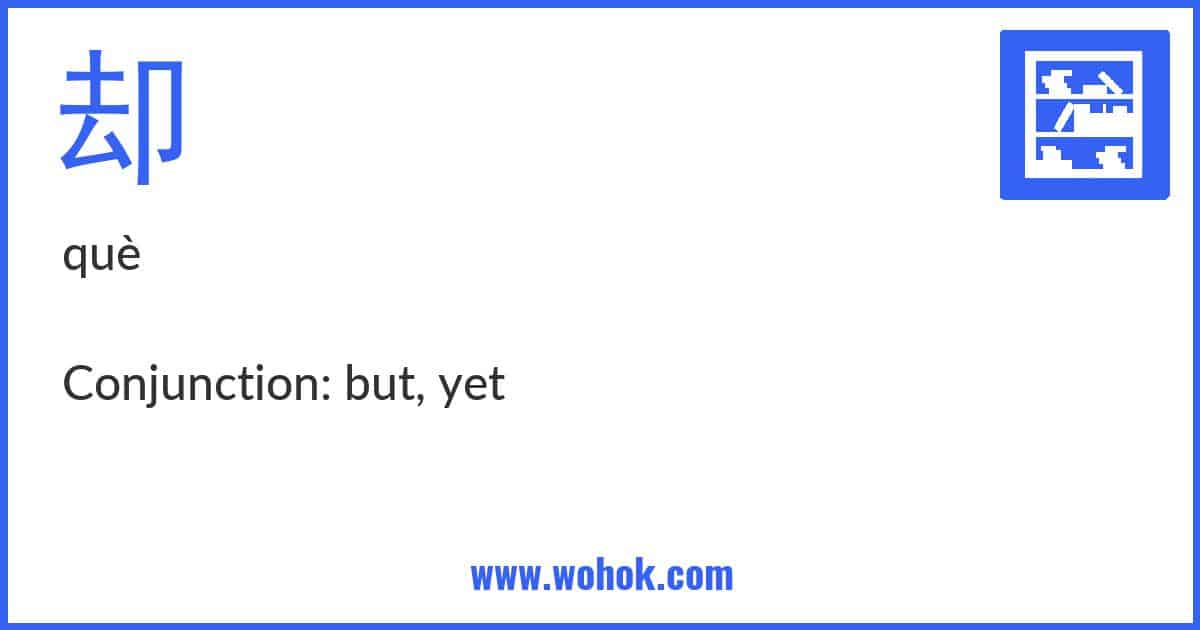The Chinese word 却 is a versatile word that usually means “however” or “yet”, and is often used to introduce a contrasting idea or to indicate a change in direction. The word conveys a sense of opposition or contradiction, making it a useful tool for expressing complex ideas and nuances in Chinese.
Translation
Conjunction: but, yet
Pronunciation
Example Sentences
| Chinese | Pinyin | Engish |
|---|---|---|
| 他很忙,却还是抽出时间来帮我 | tā hěn máng, què hái shì chōu chū shí jiān lái bāng wǒ | He’s very busy, but still finds time to help me |
| 我们计划去旅行,却被疫情取消了 | wǒmen jìhuà qù lǚxíng, què bèi yìqíng qǔxiāole | We planned to travel, but the trip was canceled due to the pandemic |
| 她虽然有很多才华,却缺乏自信 | tā suīrán yǒu hěnduō cáihuá, què quēfá zìxìn | Although she has many talents, she lacks confidence |
| 这家餐厅的环境不错,却菜品一般 | zhè jiā cāntīng de huánjìng bùcuò, què càipǐn yībān | The environment of this restaurant is good, but the food is average |
| 我们虽然有不同的观点,却能友好地讨论 | wǒmen suīrán yǒu bùtóng de guāndiǎn, què néng yǒuhǎo de tǎolùn | Although we have different opinions, we can discuss them in a friendly manner |
| 他的英语口语很流利,却写作不太好 | tā de yīngyǔ kǒuyǔ hěn liúlì, què xiězuò bù tài hǎo | His English speaking is very fluent, but his writing is not very good |
HSK
却 is part of HSK Level 4 in both HSK 2.0 and HSK 3.0.
Learning Card


